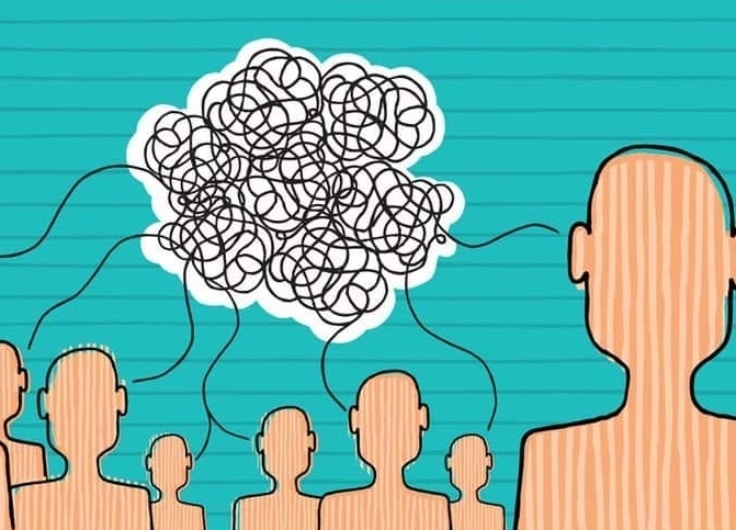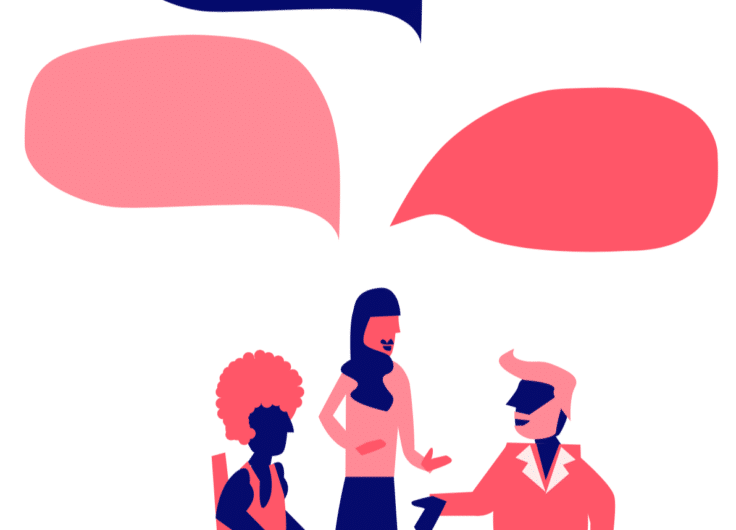Blep, Sploot and Zoomies: Online Cats and Dogs Leave a Pawed Imprint in Dictionaries
A new language can find its origin in memes. Cats and dogs on the internet use lolspeak to address their owners. These owners then start using these words themselves. How long before Dutch dictionaries start calling an extremely fluffy dog floofy?
Anyone who surfs the internet or uses social media knows what they are: pictures or videos with a funny text that are used as memes. A lot of such pictures feature a cat or dog commenting on human beings or the world in general, always in English. “Feed me, u stooped hooman!” or “Hey hooman, let meh in!”
As a late adopter of social media, I only recently noticed that the texts on such pictures contain linguistic peculiarities. They come up regularly and are subject to fairly fixed language rules.
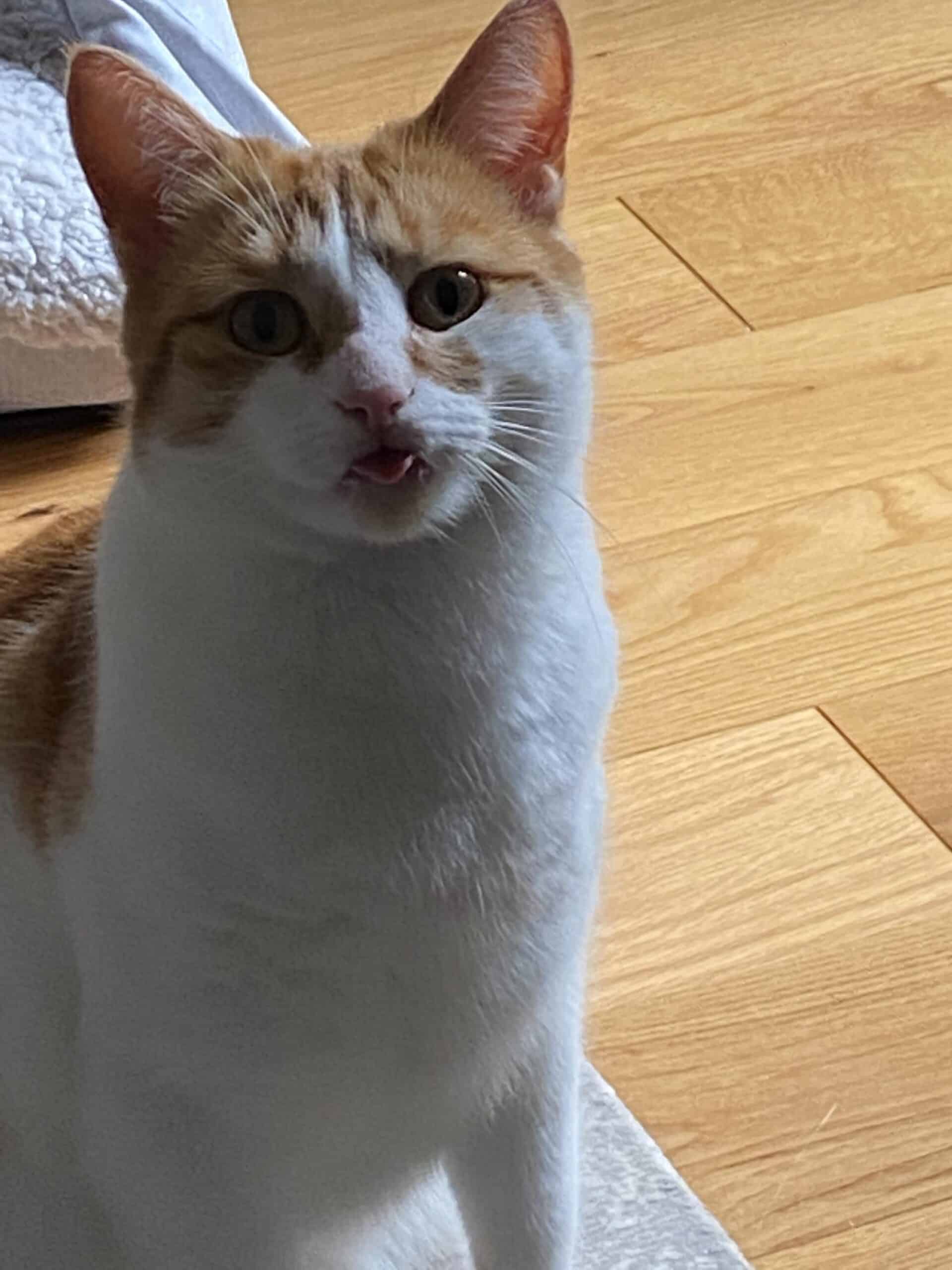 A portion of this cat's tongue hangs out of the mouth. She is showing a 'blep'.
A portion of this cat's tongue hangs out of the mouth. She is showing a 'blep'.© Planticus
What is particularly interesting is that the English dialect words of cats and dogs are adopted by their hoomans, including Dutch speakers. Some of those words can now be found in English (digital) dictionaries. My prediction is that some will soon also be listed in Dutch lexicons.
What are the specifics of English cat and dog dialect and where does this language come from?
The Cat Bible
Internet memes of cats have been around since 2005. In the same year, the website 4chan started posting funny pictures of cats every Saturday. That day of the week was renamed Caturday: Saturday renamed for cat lovers. An entire line of merchandise now exists around the motto “Every day is Caturday”.
In 2006, cat memes were renamed lolcats or LOLcats, with lol being used as the acronym of laugh out loud. The lolcats became widely known thanks to the website I Can Has Cheezburger – ICHC among experts – that was founded in January 2007. As there is a worldwide divide between cat and dog lovers, the emergence of loldogs would only be a matter of time. They emerged around 2010.
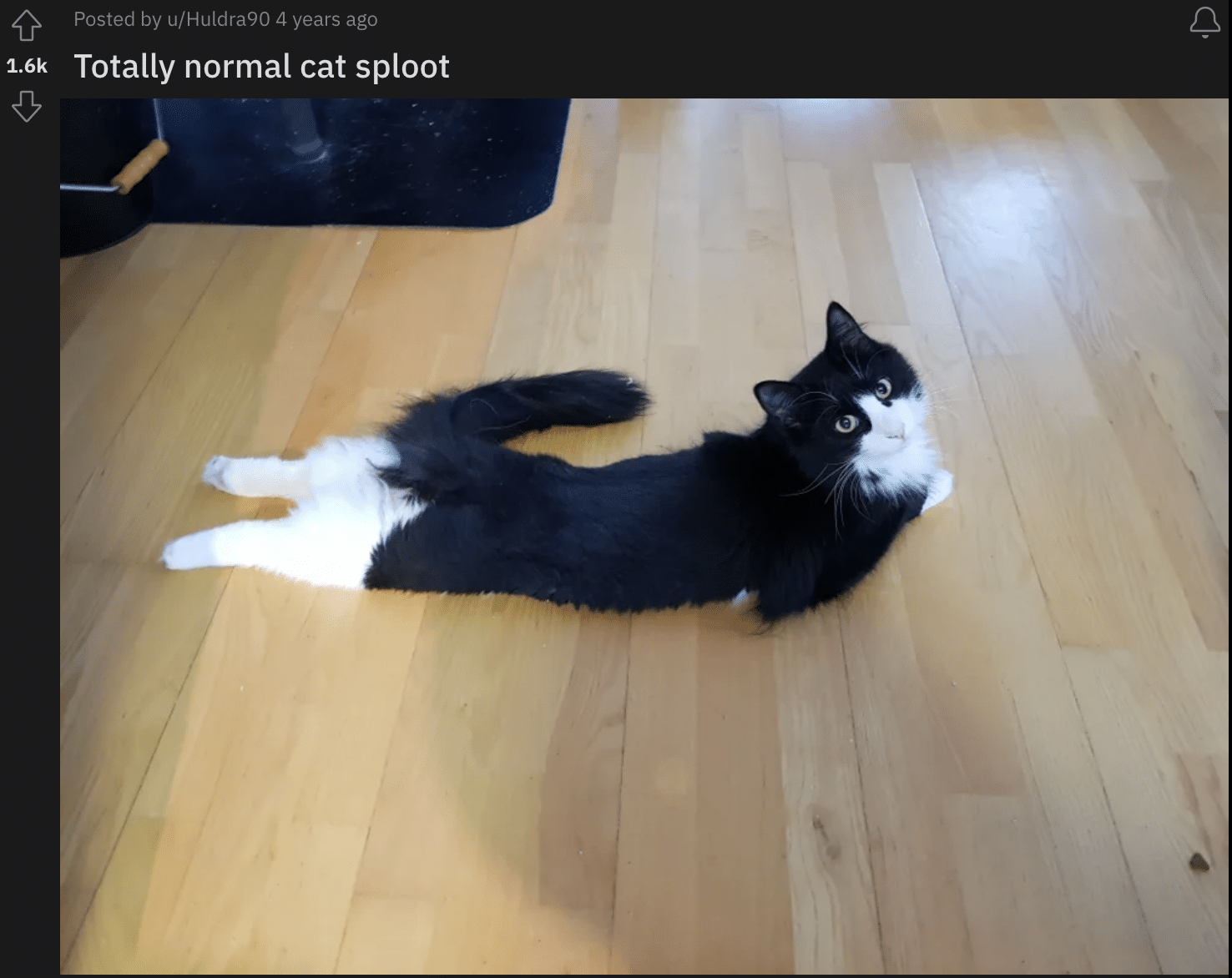 Reddit is full of lolcats and -dogs. This ‘splooting’ cat is lying flat on its stomach with its hind legs stretched out.
Reddit is full of lolcats and -dogs. This ‘splooting’ cat is lying flat on its stomach with its hind legs stretched out.© Huldra90
The growing internet community that was responsible for designing lolcats and loldogs also came up with special, recognizable language of cats and dogs. Unlike artificial languages such as Esperanto, this language did not have a single inventor. The language features were created through interaction between the community members.
The resulting new language was named lolspeak. It is clear that lolspeak deviates from the SMS – and chat languages that emerged within social media. Although these do have some characteristics in common, such as a preference for number pronunciation (w8, ask 4) and letter pronunciation (u for “you”).
Team cat refers to the specific dialect of the cats as lolcat or CattoLingo. Team dog refers to DoggoLingo, also known as doggotalk, dogspeak, woof, bork, and the unappetizing woacop, a pseudoscientific acronym for “Web-Originating Canine Communication Protocol”. The expression “I can has a hot dog” is characteristic for DoggoLingo, as opposed to “I Can Has Cheezburger” in CattoLingo.
The internet is now overflowing with lolcats and loldogs. To reassure those who are afraid of unreading: books are also being published. Professor Happycat published an entire series with titles such as How to Take Over Teh Wurld: A LOLcat Guide 2 Winning, and last year the LOLcat Bible: In teh beginnin Ceiling Cat maded teh skiez an da Erfs [earth] n stuffs came out.
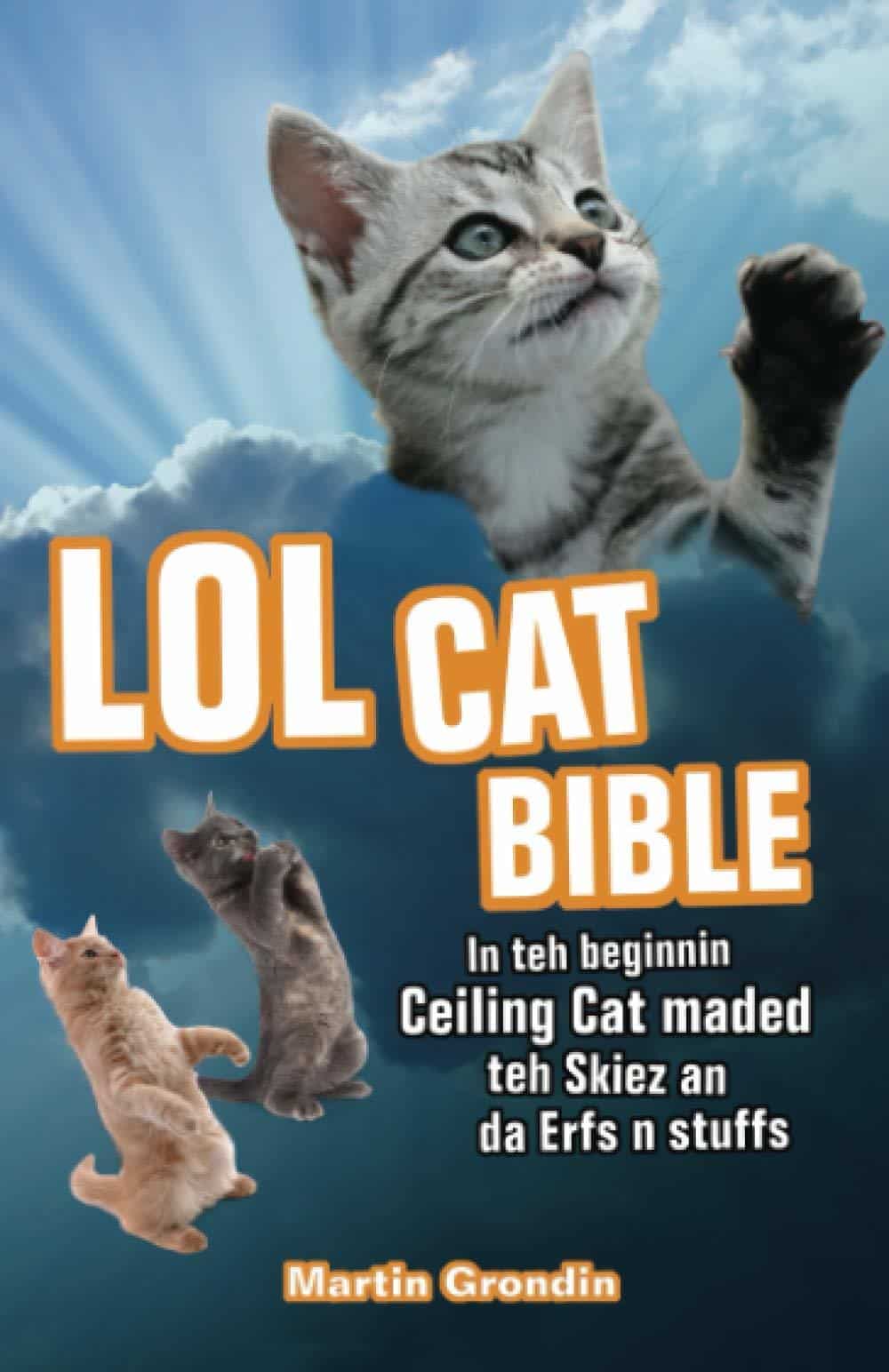
In this Bible, God is represented as Ceiling Cat, whereas the devil and Jesus are represented as Basement Cat and Happy Cat, respectively. The translation is advertised as “For the first time ever, LOLCat Bible brings the good news to your feline friends in their native LOLSpeak”. The translation of the Bible includes the following memorable phrases:
Giv us dis day our dalee cheezburger
and furgiv us for makin yu a cookie, but eateding it
and we furgiv wen cats steel our cookiez.
Surprisingly my cats couldn’t keep their eyes open when I read from the Bible. But hay, they r kats, arent they?
Let’s not forget about the dogs as other writings such as LOLdogs: Teh Most Funyest, Cutest Internet Puppiez were published for them.
Pawsitively purrfect
Lolspeak has several special characteristics. For example, verbs are simplified (I can has, I are) and irregular verbs are replaced by regular verbs (eated instead of ate). Furthermore, cats and dogs appear to have issues with English pronunciation, as can be drawn from the following comparisons tripz – trips, waterz – waters, gib – give and foob – food.
They also struggle with spelling, perhaps because their paws are not suitable for typing. They write teh instead of the, doge instead of dog, chimken instead of chicken and humnger instead of hunger. These examples are systematic, not incidental.
All compounds that consist of a segment that is phonetically similar to segment from the cat or dog world, are spelled according to this segment.
Compare:
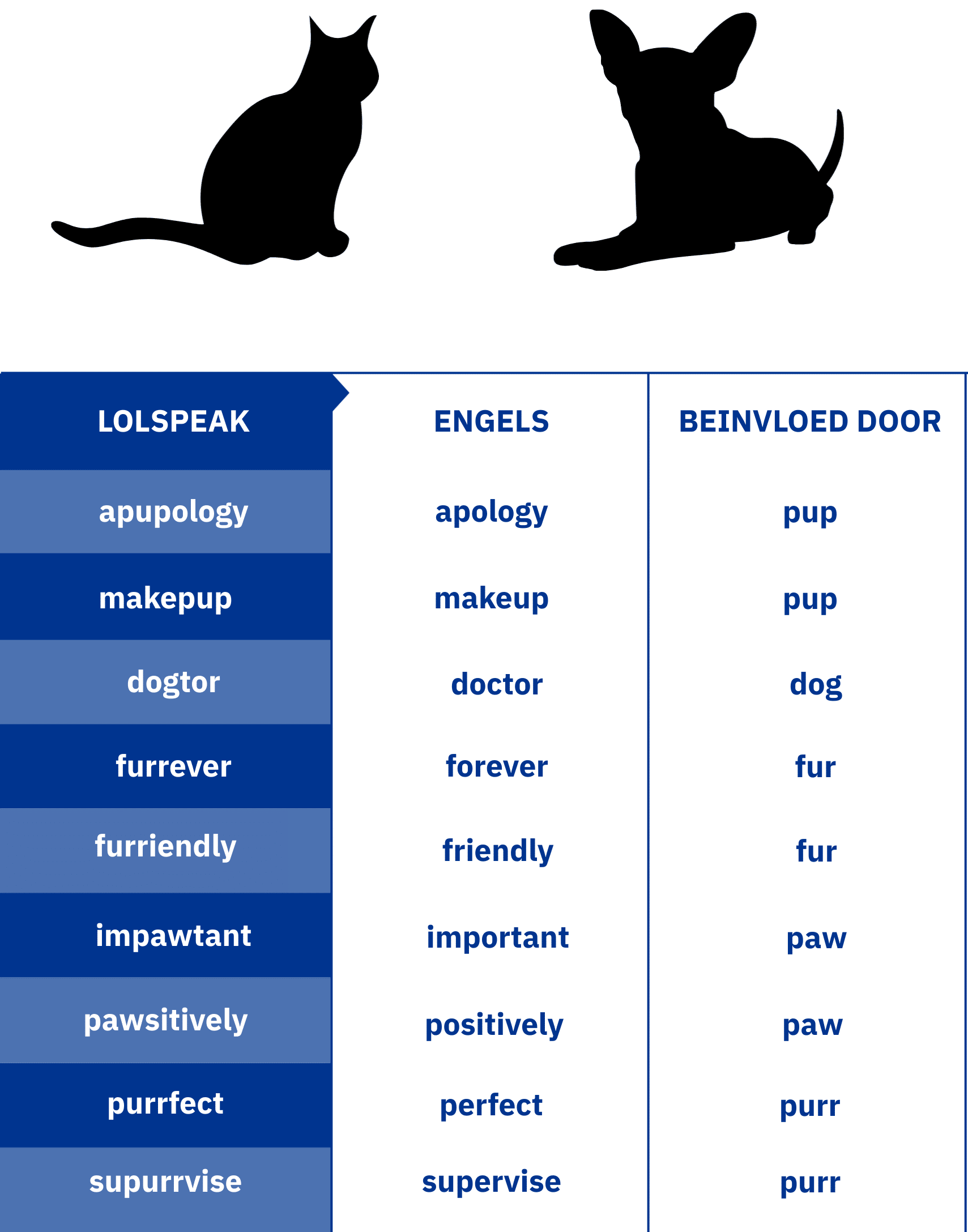 LOLSPEAK / ENGLISH / INFLUENCED BY
LOLSPEAK / ENGLISH / INFLUENCED BYDoggoLingo in particular prefers a grammatical construction with do a or doing a: do a concern “to be concerned”, do a gib “to give”, do me an educate “to teach me”, doin” me a frighten “to scare me”.
It’s all a merry game with English grammar rules. Several articles and theses have already been published about the special linguistic aspects of lolspeak, although the research is in its early stages.
Similar to Standard English, lolspeak is subject to rules. This is evident from the fact that there are now several lolcat translators active on the internet, under the motto “Communicate with your pet dog or cat. Docta dolittle eat ur hart out!” Every translator appears to translate using its own lolspeak dialect.
Neologisms in the making
The vocabulary of the dog and cat community also appears to be somewhat standardized. It was quite easy to collect a list of over two hundred lolspeak words on the internet. Usually, these words are little more than a spelling variation or a typo of an existing English word, such as angery for angry and atacc for attack. They will not become part of Standard English and they are not relevant for Standard Dutch.
It is well known that we adopt plenty loan words from English, but do we also adopt lolspeak words?
Other words are neologisms in English. I was curious if those words also appear in Dutch context. It is well known that we adopt plenty loan words from English, but do we also adopt lolspeak words?
To answer that question, I looked at whether Dutch speakers use these words in real life, outside of internet memes, for example in Dutch messages on the internet or on Twitter. This was found to be the case for the next twenty lolspeak words.
blep, portion of the tongue of a cat or dog that hangs out of their mouth. Taken from lolspeak blep and created as an onomatopoeia, after the accompanying smacking sound. In dogs, people also use blop, and one informant on Twitter writes “blep belongs to a cat, blop belongs to a dog and blup belongs to any other animal. In addition, there is mlem, where the tongue touches the nose.” See mlem.
borkdrive, when a dog barks loudly while running around; bork is Doggolingo for bark, phonetically imitated, and drive means running wildly. More commonly referred to as zoomies.
cattitude, a haughty cat, a cat with an attitude. A compound word of cat and attitude.
chonk, chubby, stocky, somewhat overweight cat or dog. Formed by the English word chunk “short and stocky person or animal”.
chonky, chubby, stocky (cat and dog). Formed by the English word chunky “short and stocky”; on Twitter: “my step brother’s cat is so funkinmg chonky”.
derp, crazy facial expression or action of a dog; a dog displaying such a facial expression or action is behaving derpy. On Twitter one person writes: “I can only laugh at how derpy this dog looks”. Derp originated as an onomatopoeic exclamation, similar to duh. The originators of the word derp are well known: Trey Parker and Matt Stone were the ones that first introduced the word in the 1998 film comedy Basketball. Next, they used it in their satirical animated series South Park to refer to an annoying, stupid person: “What a derp!” This allowed the word to enter DoggoLingo and to eventually acquire the specific dog meaning.
doggo, affectionate name for a dog. The -o was added at the end of the English word dog, a process that is done more often in lolspeak. See for instance the following words that have not been included in Dutch language; catto for cat, snacco for snack and treato for treat. This ending already made an appearance in English derivations, such as dumbo (1951) and fatso
(1943).
floof, fluffy cat or dog, also used for a cat or dog in general. Spelling variation of the English word fluff.
floofer, fluffer, big, furry dog. Derived from the English word fluff.
floofy, having a lot of fluffy hair (said about a dog); on Twitter for example: “his paws are already very thick and fluffy”. Spelling variation of the English word fluffy.
hooman, common word that cats and dogs use to speak about their owner or their human, or rather; how owners think cats and dogs speak about them; on Twitter: “I am starving hooman! Get me some food!”
house panther, a domestic black cat. From CattoLingo.
make biscuits, kneading of a cat in CattoLingo. A metaphorical description of the kneading of a cat; a cat is making air biscuits when it feels at ease and pushes out and pulls in its front paws. In Dutch, this is translated as making air biscuits.
mlem, the act of a dog or cat sticking out their entire tongue or the sound they make to lick something. Taken from lolspeak mlem and formed as an onomatopoeia of the slobbering sound. If only a small piece of tongue is visible, it is called a blep.
murder mittens, paws of a cat with the claws showing. From CattoLingo.
pupper, pupperino, small or young dog. Derived from the English word pup(py).
sploot, pose of a cat or dog lying flat on its stomach with its hind legs stretched out. The word likely derived from the English split or splat (sound made by a wet object hitting the ground), includes a sound change that occurs more frequently in lolspeak (also see bork(drive),
hooman, floof).
airplane/aeroplane ears, ears of a cat turned toward the side (facing the noise source) that makes them look like the wings of an airplane. From CattoLingo.
woofer, name for a large dog. From DoggoSpeak, a derivation of the onomatopoeic English word woof; in Dutch the word has been adapted to woef, which indicates the barking of a dog.
zoomies, rapidly running back and forth of a cat or dog, also described as the crazy five minutes in Dutch. Derived from the English word zoom (to drive or run fast). On Twitter: “My dog seems to think 5 to 12 am is the perfect time to get the zoomies”; “Watching the final game with a cat that has the zoomies is more nerve-wracking than anything”.
Future will tell which of these twenty words will actually be included as neologisms in Dutch dictionaries. As far as I’m concerned, the catchy loan translations of the following words, for which only descriptions exist in Dutch, stand an excellent chance: airplane ears and making cookies, and the words zoomies, blep, mlem and derp.
More than 40 percent of Dutch and Flemish households have a cat or dog as a family member. The animals are an important topic of conversation. Suitable words are therefore badly needed. Heck yes! What the fluff!




